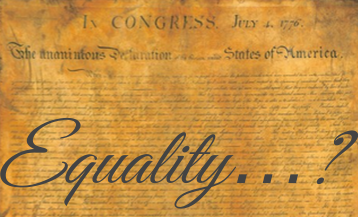Death, Taxes, and Other Stuff (continued)
Our tax system needs help. Serious, far reaching, intense help. Who in this country would like to have a bit more of their hard earned dollars end up in their own pocket? It won’t happen unless some major changes are made.
I’ve presented the problem (See my article, June 12), now we delve into a potential solution. Now, disclaimer here, I do not claim to be an economist. My aim here is to present a bit of our past and allow that to point out a potential future that will keep America going strong.
Not much is said about taxes in our nation’s Constitution. However, many would be surprised to find that when our Founding Fathers wrote our chief governing document they expressly denied the federal government from implementing a certain type of tax. What type of tax did the Founders say was out of bounds?
Article I, Section 9, Clause 4: “No Capitation, or other direct, Tax shall be laid, unless in proportion to the Census or Enumeration herein before directed to be taken.”
What our Founders were attempting wisely to avoid was exactly what we have now - direct taxation. However, Article I, Section 9, Clause 4 was rendered null after the adoption of the 16th Amendment in 1913.
That Amendment said, “The Congress shall have power to lay and collect taxes on incomes, from whatever source derived, without apportionment among the several States, and without regard to any census or enumeration.”
Prior to this there had been several Congressionally adopted income taxes (ranging from 2-5 percent of annual income) but they had been temporary and during a time of war. Currently, we have a graduated income tax ranging from 10%-39.6%. A very direct tax and one that is greatly hurting America.
The Federalist Papers are a wealth of information when trying to understand the intent of the Constitution. This document was written in a different time and so trying to get inside the minds of the drafters can be difficult, but that is why the Federalist Papers were written, to explain to America the intent of various aspects of the Constitution and why we needed it.
Alexander Hamilton, one of the authors of the Federalist Papers, wrote Federalist Number 21 and in it he had this to say -
“....[I]ndirect taxes….must for a long time constitute the chief part of the revenue raised in this country. Those of the direct kind, which principally relate to land and buildings, may admit of a rule of apportionment. Either the value of land, or the number of the people, may serve as a standard….And, as a rule, for the purpose intended, numbers, in the view of simplicity and certainty, are entitled to a preference. In every country it is a herculean task to obtain a valuation of the land; in a country imperfectly settled and progressive in improvement, the difficulties are increased almost to impracticability. The expense of an accurate valuation is, in all situations, a formidable objection. In a branch of taxation where no limits to the discretion of the government are to be found in the nature of things, the establishment of a fixed rule, not incompatible with the end, may be attended with fewer inconveniences than to leave that discretion altogether at large.”
Hamilton explained earlier that sales tax was a far better way to go. “It is a signal advantage of taxes on articles of consumption, that they contain in their own nature a security against excess. They prescribe their own limit; which cannot be exceeded without defeating the end proposed, that is, an extension of the revenue….If duties are too high, they lessen the consumption; the collection is eluded; and the product to the treasury is not so great as when they are confined within proper and moderate bounds. This forms a complete barrier against any material oppression of the citizens by taxes of this class, and is itself a natural limitation of the power of imposing them.”
Now, it is all well and good to talk about reducing taxes, however that cannot be done when we have over $17 trillion in debt and continue to spend as if money is going out of style. Taxes are strangling America, her people and her economy.
In order to reduce taxes we must reduce government spending. In order to reduce government spending we must reduce the size and scope of the government. In order to reduce size and scope we must return to government’s proper, Constitutional role. Once government is in its proper Constitutional role, there will be less regulations and red tape, allowing business to return to American soil, creating jobs. More jobs means more people working. More people working means more money contributed to a fair and just tax system which means that taxes overall can be reduced.
It’s a big round circle, and without all of the things mentioned happening, none of them will. It will be an uphill battle, but I believe the first step is for you as an American to get informed. So study up, then share the knowledge.
Jonathan Paine
@painefultruth76

Comments
Post a Comment